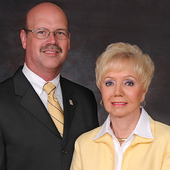Everyone likes getting a great deal buying real estate. While looking around, you have heard about a short sale and a foreclosure. What's the difference? A big one and it's important to know before moving forward.
A short sale means that the seller will not net enough from the sale to pay off the mortgage. There could be a difference of $20,000 or more and the seller must work this out with the lender. If you put an offer on a short sale, the lender makes the decision to either accept or reject the offer and they are slow to respond.
Buyers who have made offers on a short sale have waited 60 or more days without hearing that their offer is either accepted or rejected. Why are the lenders slow to respond? They are waiting for a better offer to come in. Why hurry when the homeowner is maintaining the property? As a matter of fact, offers above list price have been rejected. Meanwhile, the buyer looses out on another opportunity because they are waiting for an answer. Unless you have lots and lots of time, don't bother with a short sale.
The lender owns a foreclosure. These are often referred to as bank owned or REO's. They are similar to a normal transaction allowing you to close in 60 days or maybe less, which is a big advantage over a short sale. Why are the banks so eager to close? The bank is paying to maintain the home. They also know their bottom line.
You can expect the procedure to purchase a foreclosure to be different than a conventional purchase. In a conventional sale, the buyer usually gets pre-qualified for a mortgage if that applies. A deposit (earnest money) is submitted with the offer. When the terms of the sale are worked out between the buyer and seller, the buyer proceeds to get a mortgage if that applies. The deadline for the mortgage application and approval is defined in the purchase agreement. If the buyer is not able to get the mortgage, the earnest money is returned to the buyer.
When you purchase a foreclosure, you must be pre-approved for your mortgage, if that applies, before submitting the offer. The approval does not have to be through the lender that owns the home. You can submit the approval letter from the lender you are using. If you are paying cash, there is a very good chance that you will have to show proof of funds. Keep in mind that the lender wants to make sure that they have a solid deal and you'll still need to submit earnest money with the offer.
In a conventional sale, the seller may fill out a “Sellers Disclosure” to disclose any defects that they are aware of. The buyer has the option to have an inspection. If any deficiencies are found, the buyer can request that the seller either makes the necessary repairs or request a credit at closing for the repairs. If the seller does not honor the buyer's request, the purchase agreement is dead and the buyer gets their earnest money back.
The lenders do not fill out a “Sellers Disclosure” on a foreclosure and the home is sold “as is”. You can pay for an inspection to make an informed buying decision, but the lender will not make any repairs or give credit at closing for the repairs.
Lastly, some banks may not disclose if the home presently has any offers or if any offers have been made at all.
Before you consider owning a foreclosure, firm up the financing or obtain proof of funds, do an inspection to make an informed buying decision and allow up to 60 days for closing. There are a lot of great deals out there and they won't last forever.
You can see the foreclosures on our web site, www.cnaples.com. You can also click here for details.
I welcome your questions or comments. I would love to hear from you.
- Michael

Comments(3)